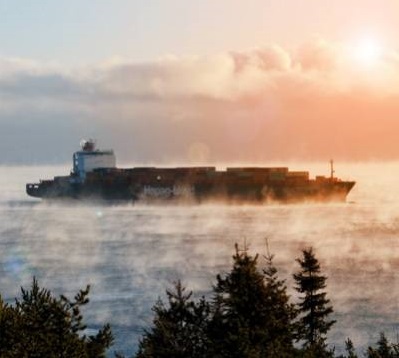
With this test, Hapag-Lloyd is taking another step towards reaching its climate-protection goals. “By the end of this year, we want to have reduced our specific CO2 emissions by 50 percent compared to the reference year 2008. Biofuels like ‘B20’ can help us reach this target. This is because, in addition to having a low sulphur content, the fuel also emits less climate-damaging CO2 during combustion,” explains Jörg Erdmann, senior director of sustainability management.
Hapag-Lloyd intends to use the test run with the Montreal Express, which operates in the St. Lawrence Coordinated Service 2 (AT 2) between Europe and Canada, to gain experience and information on the properties of the fuel in real-world use.
“We are checking to see whether the share of biodiesel has any adverse effects on the equipment and the fuel processing on board the vessel. If the test is successful, more ships from Hapag-Lloyd’s fleet could operate using the ‘B20’ fuel in future,” explained Jan Christensen, senior director of purchasing & supply at Hapag-Lloyd.

